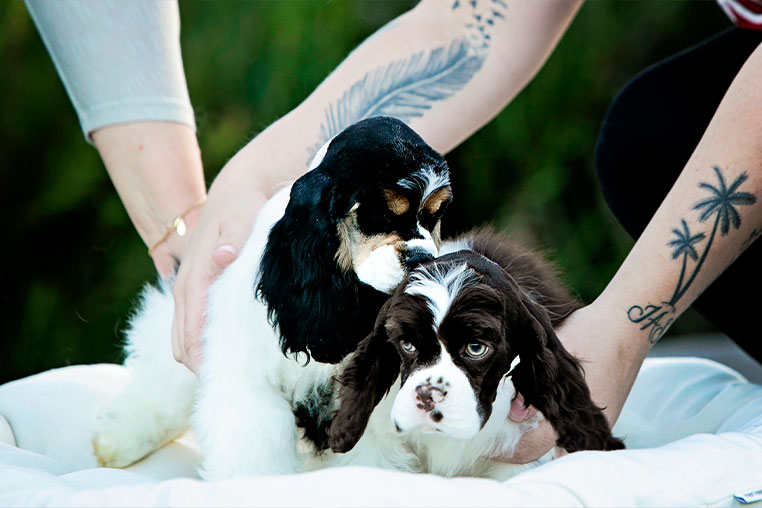Cocker spaniels are your ideal furry friends. You can count on them to be devoted, friendly, affectionate, ready to please, playful and sweet dogs. However, these beloved furballs are known to show aggression early. This behavioral issue can be a concern for Cocker Spaniel owners and can go from growls and scratches to full-blown attacks if not nipped in the bud.
Here are a few tips we have discovered that work in dealing with aggression in your Spaniel.
Find the trigger:
Read your dog to find the cause of his aggression. Does he get stressed when out on a walk and react badly to strangers and other dogs? Or does he respond aggressively to being disturbed during meal times? Are incidents isolated, or do they always happen when he encounters the same situations? Answering these questions will help you know if you can take it on yourself or beyond your control. There is something that is called Cocker Rage Syndrome, used to refer to Cocker Spaniel aggression which usually flows in the gene of improperly bred dogs. Dogs with this syndrome usually launch an unprovoked, sudden attack on strangers or family members. After the attack, the dog usually acts sorry or submissive.
Start behavior modification:
You must invest time in training your dog. If you need someone to start the process, get a trainer. Introducing and rewarding good behavior has been found to reduce the incidence of bad behavior. When you show your dog that bad habits (like nipping at you) are met with your displeasure, your ever-pleasing Cocker will begin to change. It is necessary to teach your dog to socialize around this time also. Socializing your dog will reduce the possibility of him reacting aggressively around people later on.
Avoid situations you cannot control:
Yes, Cocker Spaniels are great with children and beloved for their long hair and small bodies, so when you go on a walk, people want to pet them. If your dog doesn’t like this, avoid walking him where you will encounter so many people. Try to keep a distance from people and decline any requests to touch him. Also, keep him at a distance from other dogs if it seems he hates to socialize. If you are not sure you can control the situation, you might have to look into muzzling him when there. If he gets aggressive around food, you should avoid going around his food bowl when he is eating.

Avoid unhealthy aggression:
The best time to teach healthy socialization to your cocker spaniel is between the first six weeks of its life. Cocker Spaniel’s are easy to train. Unfortunately, they are great at imbibing poor character traits, especially from children. Hence it is advisable to get Cockers when you have older children. Always reward good behavior and discourage bad behavior. Find things to distract your dog when he begins to show signs of being on edge. Usually, he will bark to alert you before he bites.
Set a schedule:
A schedule is a sure way to control anxiety in your dog. When you set out your Cockers meal at the same time every day, your dog feels comfortable and does less resource guarding. Walk him along the same routes letting him get familiar with it. When your dog knows what to expect, he gets less anxious and (as a result) less aggressive.
Now your beautiful Cocker Spaniel is part of the family, and you must treat him as such, taking care to find solutions to whatever issues he has. Try a few of these tested tips guaranteed to give you results. Don’t forget to report any signs of aggression to your vet, who will determine if they are symptoms of something more serious.

My cocker spaniel is exhibiting aggressive behavior at five months. I have only had Savannah for only 3 months and she bites and growls at me. I took her to her first grooming appointment and the groomer sent me a long text, that my dog was biting and spastic. The groomer said she could not groom my dog unless she was on calming medicine. The groomer said I would have to take her to the vet to get her groomed. My dog does great on walks meeting new people and at the vet. I am very upset about her behavior and I am not sure what to do. I am working on obedience training with her.